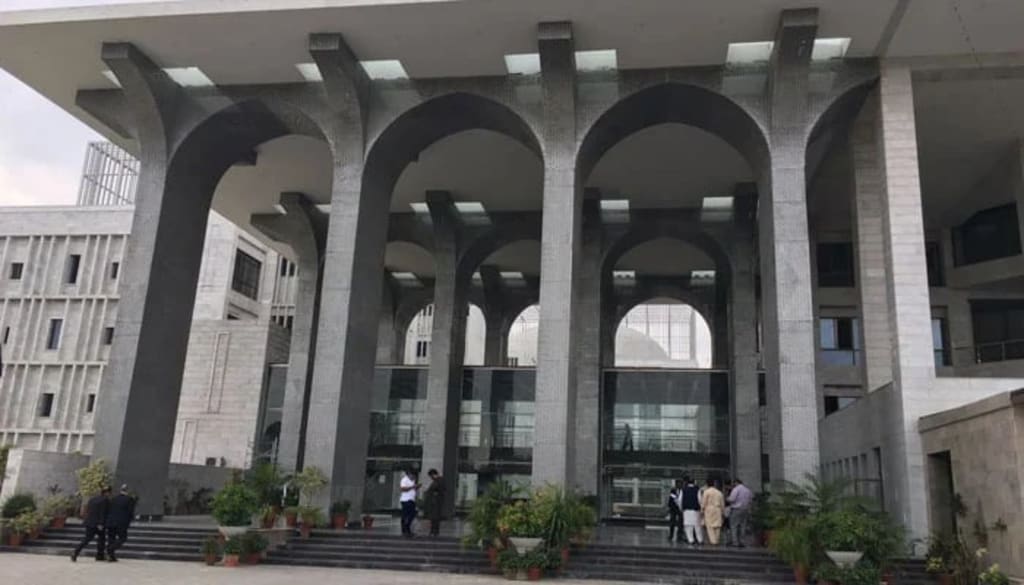Islamabad High Court's Justice Criticizes Authorities Over Missing Poet Case.
Court Demands Answers on Missing Poet.

On Monday, Equity Mohsin Akhtar Kayani of the Islamabad High Court (IHC) communicated solid disappointment with the specialists over their inability to recuperate the missing Kashmiri writer and columnist, Ahmed Farhad Shah. Shah was supposedly kidnapped from his home the week before. His significant other looked for help from the court on May 15, requesting his recuperation and for an examination to recognize and indict those liable for his vanishing.
During the conference, a delegate from the Service of Protection informed the court that Shah was not in that frame of mind of the Between Administrations Knowledge (ISI). The ISI denied any association in Shah's vanishing.
Equity Kayani communicated disappointment, expressing that the matter had heightened past the purview of both the ISI and the Tactical Insight (MI), and that they were showing their inability to resolve the issue. He guided the guard secretary to present a composed report to the court and requested both the protection and inside secretaries to show up under the watchful eye of the court that very day.
The adjudicator cautioned that he could bring State leader Shehbaz Sharif and other bureau individuals later. Stressing the reality of the case, he expressed, "A model must be set for this situation." He addressed whether the covert agent offices or the law would administer the nation, condemning the offices for sending blended messages to Shah's family while denying having him in care.
Equity Kayani requested that the examination official record the assertion of the ISI area authority and submit it to the court by Tuesday. He reprimanded the height and established restrictions of the area administrator, suggesting that even an eighteenth grade official should regard the law. He demanded that the nation could work without the excessive impact of the government operative organizations.
The adjudicator likewise demonstrated that he would excuse the request assuming Shah was viewed as a psychological oppressor or engaged with any crook case. Be that as it may, he focused on the requirement for responsibility and legitimateness in taking care of the vanishing case.
During the meeting, an extra principal legal officer referenced that a FIR had been recorded and the police were exploring. Equity Kayani reproached the lawyer, advising him that documenting a FIR was a fundamental obligation of the police, not some help.
Beforehand, in another conference, Equity Kayani had featured the requirement for severe regulations against implemented vanishings, recommending that those mindful ought to have to deal with extreme damages, including capital punishment.
This case reveals insight into the continuous issue of implemented vanishings in Pakistan and the job of knowledge organizations. The court's harsh position mirrors the developing worry over the absence of responsibility and straightforwardness inside these organizations. It additionally brings up issues about the overall influence between policing and the general set of laws in Pakistan.
Equity Kayani's comments highlight the disappointment and weakness looked by groups of missing people, as well as the legal executive's battle to declare its position over strong knowledge organizations. The result of this case could start a huge trend for dealing with comparative cases from here on out.
The court's choice to conceivably gather high-positioning authorities, including the Top state leader, demonstrates the weightiness of the circumstance and the requirement for high level responsibility. The appointed authority's emphasis on an exhaustive examination and clear revealing from the guard and inside services exhibits areas of strength for a push for equity and law and order.
This case keeps on unfurling, with the subsequent stages subject to the assertions and reports to be presented by the examination officials and government delegates. The IHC's treatment of this case will be firmly watched, as it might impact future lawful activities in regards to implemented vanishings and the job of knowledge organizations in Pakistan.
About the Creator
Enjoyed the story? Support the Creator.
Subscribe for free to receive all their stories in your feed. You could also pledge your support or give them a one-off tip, letting them know you appreciate their work.






Comments
There are no comments for this story
Be the first to respond and start the conversation.